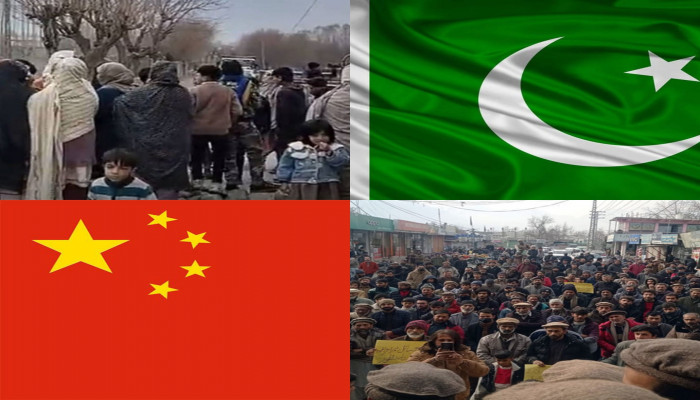Protests in Gilgit Baltistan over power outages disrupt Pakistan-China trade route
- In Reports
- 09:48 PM, Jan 08, 2025
- Myind Staff
Pakistan's trade route with China has been blocked for the fifth day in a row, as demonstrations over chronic power shortages continue to disrupt everyday life and commercial activity. The protests, which have increased in size and intensity, reflect broad dissatisfaction with the country's protracted energy crisis.
Residents and local businesses, particularly in border regions, have protested the government's failure to address the power outages. The persistent interruptions have considerably hampered the movement of products and services between Pakistan and China, both of which are important trading partners.
The organising group of the sit-in in Hunza, Pakistan-occupied Gilgit Baltistan, pledged to continue their protest till their demands are fulfilled. Rally leaders highlighted the region's insufficient power supply, including up to 23-hour outages during the winter season. According to VOA News, men and women joined in the actions despite average temperatures of -4°C during the day and -10°C at night.
Rahim Aman, a Hunza person living there, reported a significant rise in protesters. According to the speaker, female activists used automobiles and loudspeakers to promote rally participation. According to the speaker, the gathering also included officials from local political parties, businesses, and hotel groups.
Protesters in the affected districts have been calling for immediate action to address the power outages, which have become a common occurrence around the country. The absence of continuous electrical supply has damaged enterprises, slowed everyday routines, and sparked widespread unhappiness with the government's handling of the problem.
The protests have also raised worries about the long-term impact on Pakistan's commercial relations with China, a major partner in its economic growth. The shutdown of this crucial trade route might have ramifications for bilateral projects, notably those associated with the China-Pakistan Economic Corridor (CPEC), which is critical to both nations' economic futures.
The Pakistani government has not proposed a concrete answer to the electricity problem, leaving many residents questioning their leaders' ability to solve the country's underlying infrastructural challenges. As protests continue, the government is under increasing pressure to act swiftly and firmly to restore power and resolve the current issue or face further deterioration of internal stability and foreign relations.







Comments